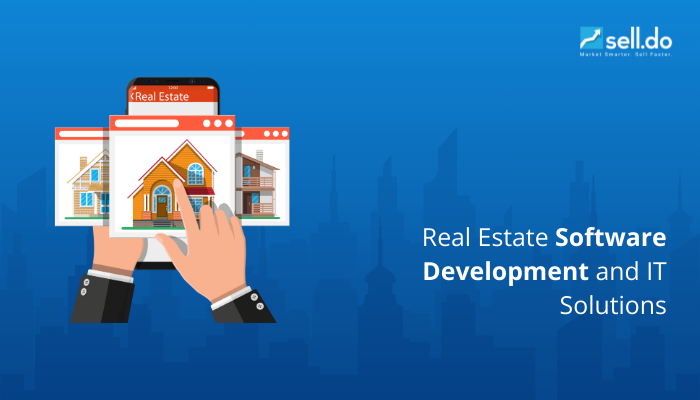In real estate, a well-rounded marketing strategy is essential to stay ahead. To maximize ROI, blending both online and offline marketing efforts is key. Online strategies, such as targeted ads, social media campaigns, and email marketing, allow you to reach a wide audience efficiently with measurable results.
However, offline tactics, like networking events, print advertising, and local partnerships, help build trust and foster deeper connections within your community. The right balance between these methods ensures that you’re not only reaching potential buyers and sellers but also creating meaningful, lasting relationships. By strategically combining both approaches, you can enhance visibility, engage different audiences, and see a higher return on your marketing investment.
So, without further ado, let’s get started!
Online Real Estate Marketing Strategies
With 97% of home buyers using the internet to search for property, leveraging online real estate marketing strategies is crucial to effectively reach and engage potential buyers.
SEO Optimization for Real Estate Websites
Optimizing your website is essential to capture potential clients as 53% of website traffic for real estate agents come from SEO. Ranking high on search engines ensures visibility and helps you stay competitive in the digital marketplace. Here’s what you should know about real estate SEO:
- Local SEO: Target location-specific keywords like “apartments in Bangalore” or “commercial spaces in Delhi” to attract nearby buyers.
- Mobile Optimization: Ensure your website is responsive and loads quickly to cater to mobile users.
- High-Quality Content: Publish neighborhood guides, market insights, and property listings to provide value and improve search rankings.
- Technical SEO: Use optimized images, fast-loading pages, and clean URL structures for better performance.
- Analytics Tools: Track visitor behavior and refine your SEO efforts using platforms like Google Analytics.
Implementing these strategies can significantly boost your online visibility and drive qualified leads to your real estate business. You can check our blog: Strategies to Improve SEO for Real Estate for more tips.
Social Media Marketing
Social media platforms like Instagram, Facebook, and LinkedIn are essential tools for real estate marketing, especially in India, where millions of people are active on these platforms. With 82% of real estate businesses using social media for marketing, these channels provide a significant opportunity to connect with potential buyers. Here are some key strategies for effective social media marketing for real estate:
- Instagram for Visual Appeal: Use Instagram’s visual-first platform to post high-quality property photos, video walkthroughs, and reels. Optimize your bio and captions with SEO-friendly keywords to attract potential buyers. With Instagram ads boasting a 1.22% average engagement rate for real estate businesses, they are an excellent way to increase visibility and generate leads.
- Facebook for Engagement: Share property listings, host live Q&A sessions, and promote open houses. Leverage Facebook Ads for targeted campaigns based on location, income level, and interests, ensuring your outreach is precise.
- LinkedIn for Professional Connections: Use LinkedIn to network with developers, brokers, and investors. Share market trends, industry insights, and property success stories to position yourself as a knowledgeable professional.
- Localized Content: Create content in regional languages to connect with audiences in different Indian cities and states effectively.
- Stories and Polls: Engage your audience with interactive features like polls, quizzes, and testimonials on Instagram and Facebook stories.
If you need innovative ideas, you can check our blog, Real Estate Social Media Post Strategies and Content Ideas.
Email Campaigns for Lead Nurturing
Email campaigns offer a direct and personalized way to connect with potential buyers and nurture leads over time. With email marketing delivering 40% higher conversion rates than social media, it’s a proven method for building relationships and driving sales. Below are a few points to consider:
- Personalization and Segmentation: Customize emails based on the recipient's preferences, location, and stage in the buying journey. Use segmented lists to target buyers, sellers, or investors with tailored content.
- Automated Drip Campaigns: Set up automated drip campaigns to maintain consistent communication. For instance, send follow-up emails after property inquiries or share updates on similar listings to keep leads engaged.
- Visually Rich Content: Include high-quality images, property videos, and virtual tour links to make emails more engaging.
- Clear Call-to-Actions (CTAs): Add compelling CTAs such as “Schedule a Visit” or “View More Listings” to encourage leads to take action.
- Mobile-Friendly Design: Ensure emails are optimized for mobile devices, as many users browse their inboxes on smartphones.
Paid Digital Advertising
Paid digital advertising is crucial to real estate marketing strategies, offering immediate visibility and measurable results. Platforms like Google Ads and PPC campaigns enable real estate professionals to target high-intent buyers and sellers effectively. With a 1.5% conversion rate, PPC ads have proven to drive qualified leads. Paid campaigns have the following benefits:
- Precise Audience Targeting: Utilize geotargeting to show ads to potential clients in specific locations, such as neighborhoods or cities of interest.
- Cost Control: Set daily or campaign-specific budgets, ensuring you only pay for actual clicks.
- Quick Results: Unlike organic strategies, paid ads provide instant visibility, allowing properties to reach buyers faster.
- Custom Ad Formats: Leverage video ads, carousel ads, or text ads to showcase properties creatively and engage audiences effectively.
- Remarketing Campaigns: Reconnect with users who visited your site but didn’t convert, keeping your brand top-of-mind.
Content Marketing
Content marketing helps build trust and credibility in the real estate industry by offering valuable, informative resources to potential clients. Here are some effective content ideas for real estate:
- Blogs and Articles: Share property buying tips, market trends, and the home buying process to educate your audience.
- Case Studies: Highlight successful client stories or showcase sold properties to build credibility.
- Neighborhood Guides: Create detailed guides about local communities, including amenities, schools, and lifestyle details, to attract location-focused buyers.
- Video Content: Use short videos for property walkthroughs or to explain industry concepts.
Now that we’ve covered online strategies, let’s look at some effective offline real estate marketing strategies to connect with potential clients directly.
Offline Real Estate Marketing Strategies
Traditional marketing methods remain highly effective in real estate marketing strategies, offering personal connections and local outreach that digital approaches often can’t replicate.
Networking and Community Engagement
Building genuine relationships through networking and community involvement can be the pathway to real estate success. Engaging with the local community strengthens your presence and positions you as a trusted and familiar face in the market.
- Attend Local Events and Trade Shows: Participating in community events, trade shows, and real estate expos can help you meet potential clients and industry peers.
- Collaborate with Local Businesses: Partnering with local businesses, such as interior designers, contractors, and mortgage brokers, can help you reach a wider audience. Co-hosting events or cross-promotions can boost visibility and referrals.
- Host Open Houses and Community Workshops: Organize property tours or workshops on homebuying tips and real estate trends.
- Leverage Local Charities:Supporting local causes or sponsoring community activities can enhance your reputation and show your commitment to the area you serve.
- Utilize Flyers, Brochures, and Local Newspapers: Distribute well-designed flyers and brochures in high-traffic areas or include them in local newspapers. These materials can showcase property details, your services, and contact information, targeting a hyper-local audience effectively.
- Impact of Professionally Designed Property Signs: High-quality property signage attracts immediate attention from passersby and communicates key property details. Signs with clear information and an eye-catching design can generate interest and prompt inquiries.
- Ensure the property is clean, staged, and welcoming.
- Provide expert hosting with detailed knowledge about the property and neighborhood.
- Offer refreshments or small takeaways to create a lasting impression.
- Collect visitor feedback and contact information for follow-ups.
- Personalized Postcards and Newsletters: Highlight local properties, market updates, or exclusive offers tailored to the recipient.
- Include QR Codes: Allow recipients to easily access virtual tours, property listings, or your contact details with a quick scan.
- Seasonal Campaigns: Send mailers during key times, like festivals or new project launches, to capture attention.
- Incentives for Referrals: Offer rewards like gift cards, discounts, or vouchers for successful referrals.
- Exclusive Client Events: Organize appreciation events to show gratitude and encourage word-of-mouth promotion.
- Easy Referral Process: Provide simple tools like digital forms or referral links to make referring hassle-free.
- Omni-Channel Communication: Interact with leads through WhatsApp, SMS, email, IVR, and more.
- Lead & Inventory Management: Easily manage leads, negotiations, and property listings.
- Automation & Analytics: Utilize automated workflows and data-driven insights to fine-tune your sales strategy.
- Document Management: Simplify document handling with digital signatures and eKYC integration.
- Mobile App Access: Manage your leads and properties on the go with Sell.Do's mobile app.
- Customizable Dashboards: Get real-time insights with personalized dashboards to monitor key metrics.
- Lead Scoring: Prioritize leads based on behavior, improving your focus on the most promising opportunities.
- Integrated Marketing: Automate and track email and SMS campaigns to engage and nurture leads efficiently.
Print Advertising and Signage
Traditional print advertising remains a reliable way to reach potential buyers and sellers in the real estate industry. It adds a personal touch and helps build trust within the local community.
You can check our blog, Free Real Estate Flyer Templates Download and Customize.
Open Houses and Property Showcases
Organizing open houses and property showcases allows prospective buyers to experience properties firsthand, fostering trust and building stronger connections. Exclusive property tours make clients feel valued, significantly boosting the chances of conversion. Here’s how you can enhance your visitor experience:
Direct Mail Campaigns
Direct mail remains an effective way to connect with local leads, offering a tangible and personal touch that digital channels can’t replicate. Pairing it with modern elements like QR codes enhances engagement and drives online traffic.
To help you get started, here are some Real Estate Agent Email Templates for Different Situations.
Referral Programs
Referral programs leverage satisfied clients to create a powerful, cost-effective lead generation channel. They not only build trust but also incentivize your network to grow organically.
By combining the power of online and offline real estate marketing strategies, you can reach a wider audience, build stronger connections, and ultimately achieve better results in your marketing efforts.
Additionally, to streamline and enhance your real estate marketing efforts, we recommend using a comprehensive CRM like Sell.Do.
Explore Sell.Do, India’s Only Dedicated Real Estate CRM!

Real estate professionals often face challenges like poor lead tracking, insufficient lead nurturing, disconnected systems, and inefficient communication. These obstacles result in missed opportunities, lower conversion rates, and hinder seamless client experiences.
Unlike generic CRMs, Sell.Do is created specifically for the real estate industry, offering tailored solutions to overcome these hurdles. With ISO 27001 certification and 100% lead capture, Sell.Do makes sure no lead is overlooked.
Key Features of Sell.Do:
Sell.Do is trusted by over 1000 developers, providing the tools necessary to boost sales and strengthen client relationships.
Conclusion
To make the most of your real estate marketing strategies, it's crucial to blend both online and offline methods to reach a wider audience and drive better results. Whether it’s optimizing your SEO, engaging on social media, or hosting open houses, each approach helps you build stronger connections with potential clients.
If you want to streamline your efforts and ensure no lead is left behind, Sell.Do can help. With its powerful CRM, automation features, and lead nurturing capabilities, Sell.Do is designed to capture, nurture, and convert leads, making it an essential tool for boosting your real estate marketing strategies.
Request a demo today and see the difference Sell.Do can make!






Leave a comment
Comments (0)
Be the first one to comment.